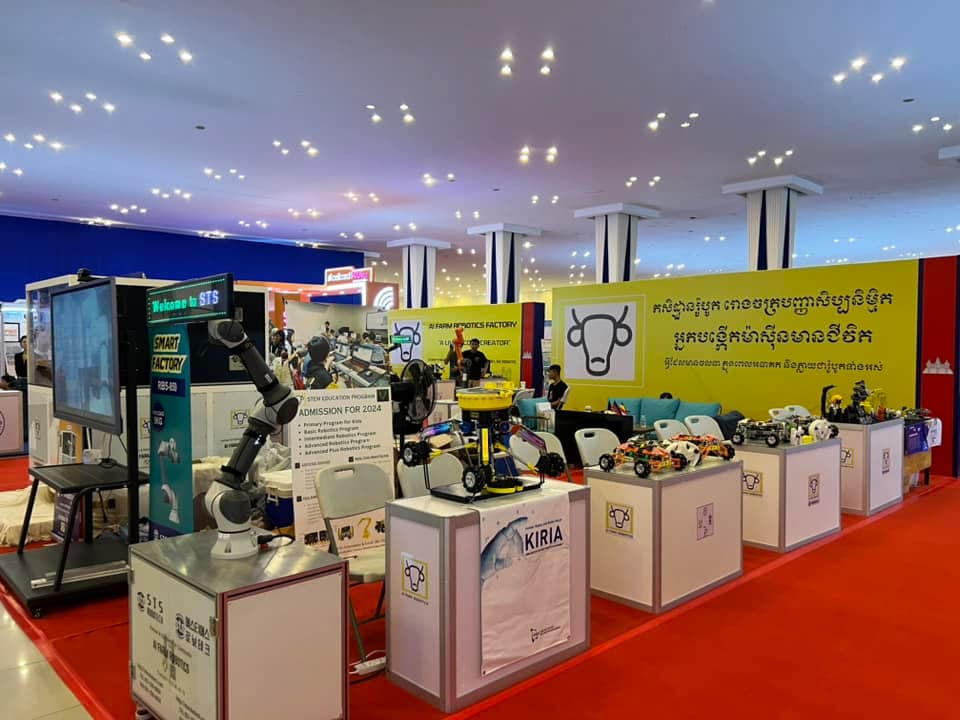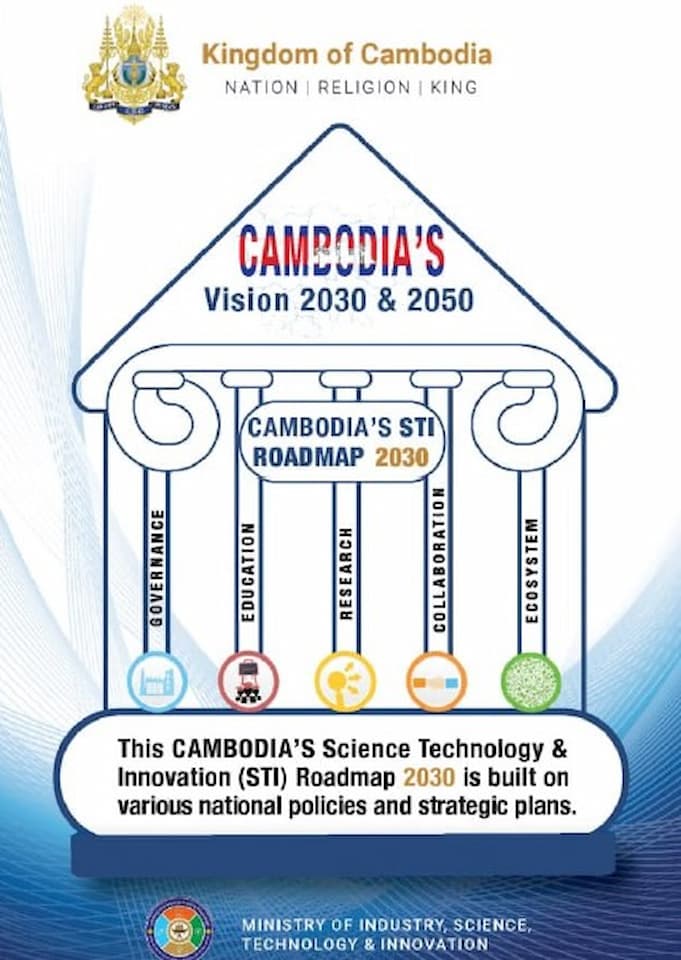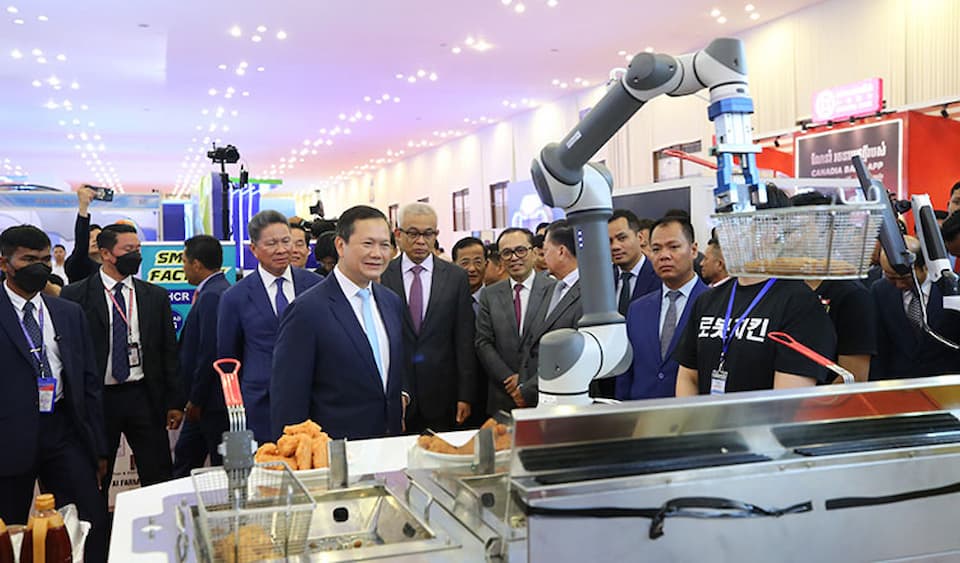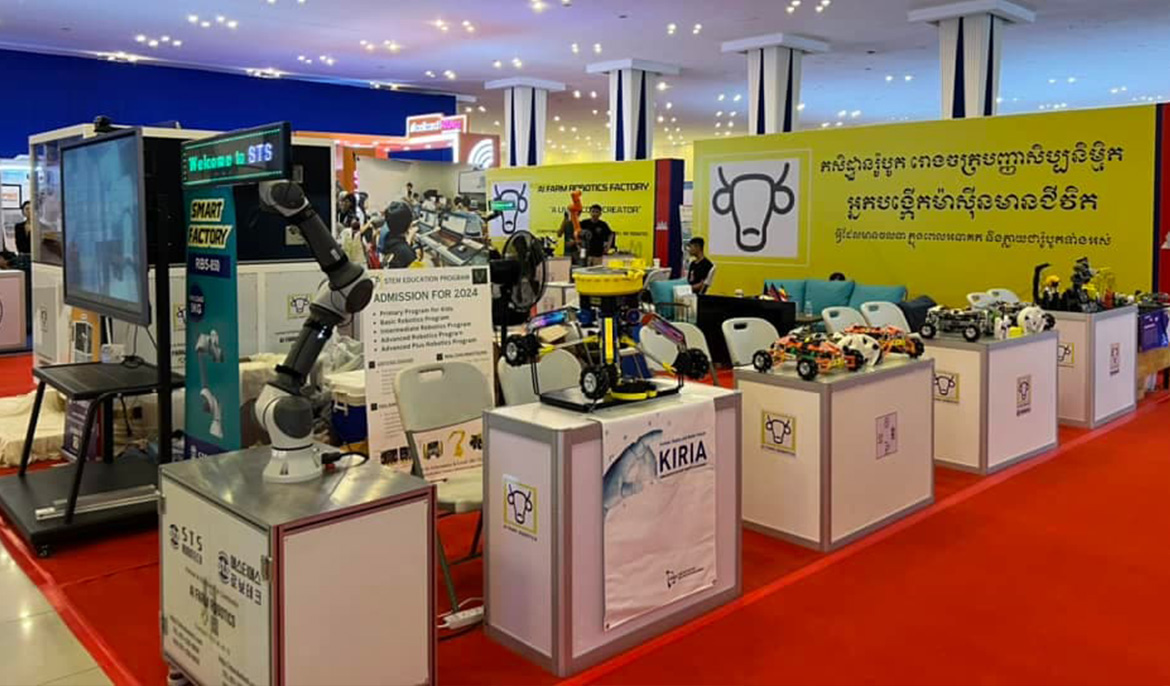The 2nd National Day of Science, Technology & Innovation (STI Day 2024) was held at the Koh Pich Convention and Exhibition Centre in Phnom Penh from March 24-26 2024, with Prime Minister Hun Manet attending and outlining the key objectives to achieve the STI Roadmap 2030 goals.

The STI sector will play a crucial role in improving innovation in Cambodia as it aims to better invest in and harness science and technology as part of the country’s developmental journey, which is especially important for its skills sector.
The second Cambodian STI Day also introduced the Public Sector Innovation Awards which Minister Hem Vanndy of the Ministry of Industry, Science, Technology & Innovation (MISTI) believes will recognise developments in the public sector and assess the impact of innovations on service delivery, cost-effectiveness, and scalability.
This sector is key to the nation’s goal of becoming an upper-middle-income nation by 2030 and high-income status by 2050 – and moving away from some more basic and prevalent skill sets in the market.
Part of the MISTI goals is to have half of Cambodian students graduate with STEM (science, technology, engineering, and mathematics) by 2030, but the current numbers are nowhere near this.
MISTI Minister Hem Vanndy said at the STI Day 2024 that the Ministry is preparing legislation to extend the development of this vital sector.
STI Roadmap 2030 – Cambodia

The objectives outlined in the STI Roadmap 2030 by the Ministry of Industry, Science, Technology & Innovation and supported by the National Council for Science, Technology and Innovation are the blueprint for the nation to develop these fields.
Somewhat confusingly there are several concurrent roadmaps, policies and strategies with six Technology Roadmaps 2030 (EduTech, HealthTech, TourismTech, EnergyTech, DigitalTech, and AgriTech) as well as the National Research Agenda 2025, and the Tech Need Assessment.
The pillars of these are aligned with the National Rectangular Strategy Phase IV, the National Strategic Development Plan 2019-2023, the National Policy of STI 2020-2030, the Industrial Development Plan 2015-2025, and others including the New Pentagonal Strategy implemented by Hun Manet since he took office in 2023.
Cambodia’s STI Roadmap 2030 maps out five policy strategies:
- To enhance the governance structure of the STI system
- Develop the national STI workforce
- Strengthen research capacity and quality
- Increase collaboration and linkages between different stakeholders.
- Foster an enabling ecosystem for innovation.
MISTI needs to work through these as well as newer policies on R&D (Research & Development), tech transfer, STI parks etc to foster a startup ecosystem that will help Cambodians innovate in this digital age, more recently being hyper-powered by AI.
How To Achieve Cambodia’s STI Goals
The Prime Minister highlighted the ‘Triple Helix model’, a conceptual framework that allows academia, industry, and government to interact to foster economic and social development, as well as the need for development partners in education, training, research and development being crucial.
According to Cambodia’s STI Roadmap 2030, only one per cent of GDP by 2030 will be committed to Science, Technology & Innovation R&D.
Compared to other leading countries this is small. The OECD (Organization for Economic Co-operation and Development) estimates that Israel and South Korea have the highest levels (both above 5 per cent of GDP) and the average among OECD nations for R&D intensity was 2.7 per cent.
The STI Day 2024 also placed an emphasis on SMEs in the Kingdom under the theme of “SMEs Go STI.” MISTI previously reported 5,328 new SMEs were set up in 2023 while 5,158 SME licences were renewed.

Prime Minister Hun Manet outlined five recommendations to achieve the Kingdom’s science, technology, and innovation (STI) initiatives.
- Change the practice of working in silos to better cooperation, and foster a competitive national innovation system.
- Expedite the technological modernisation of industries and small and medium enterprises (SMEs) by adopting cutting-edge technologies, improving productivity, enable local businesses to advance in science, technology, and innovation.
- Promote diverse and expanded technology hubs to assist stakeholders – pertains to the private sector, market access, and integration into supply chains.
- Process to monitor and evaluate the performance of relevant ministries and institutions based on the indicators outlined in the government’s STI Roadmap 2030.
- Educational and research institutions to work along with the private sector, ministries and state institutions to establish a robust foundation of science, technology and innovation.
STI Day 2024 featured more than 230 booths showcasing tech prototypes, tools, and other SME-tailored solutions from Cambodia.


